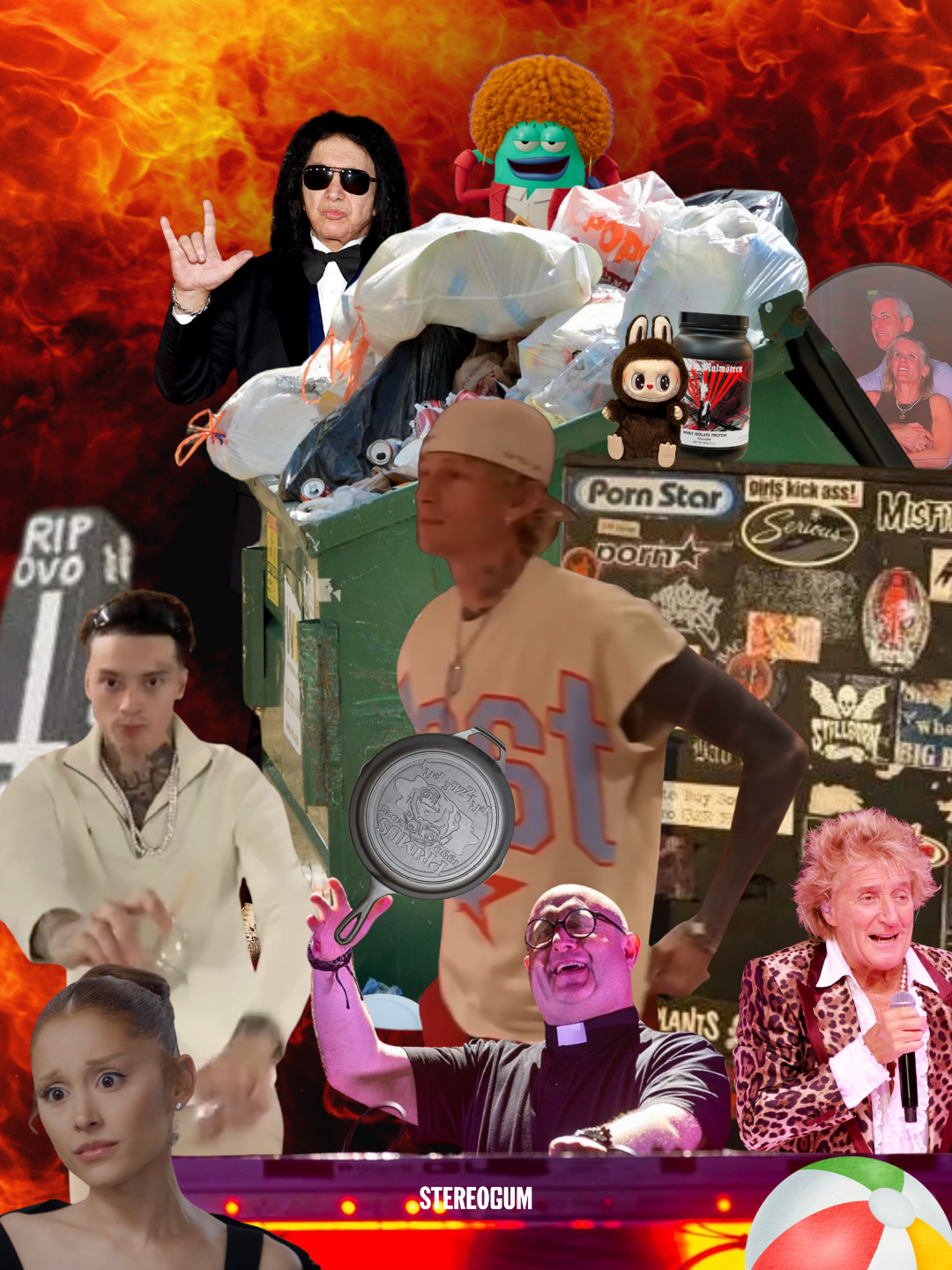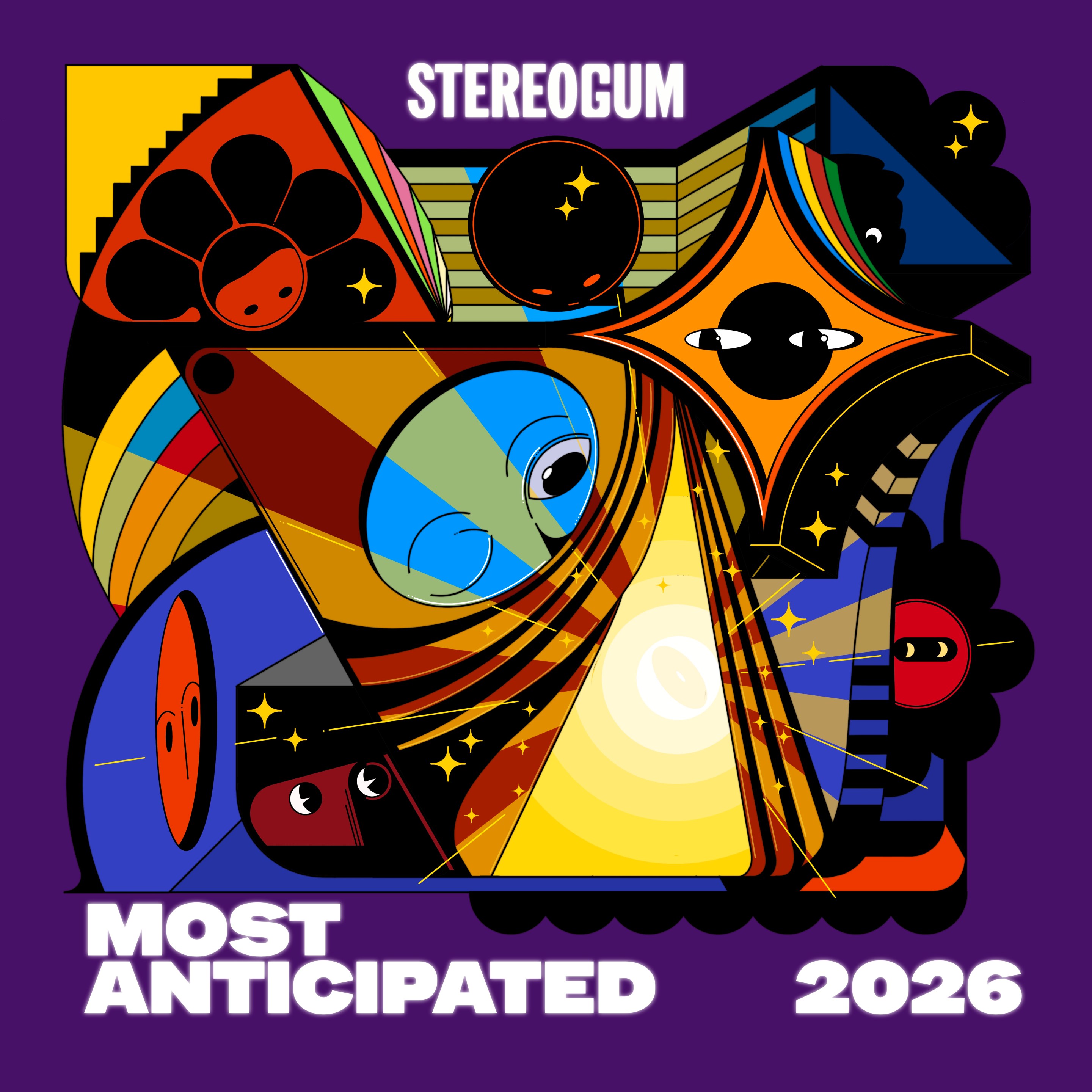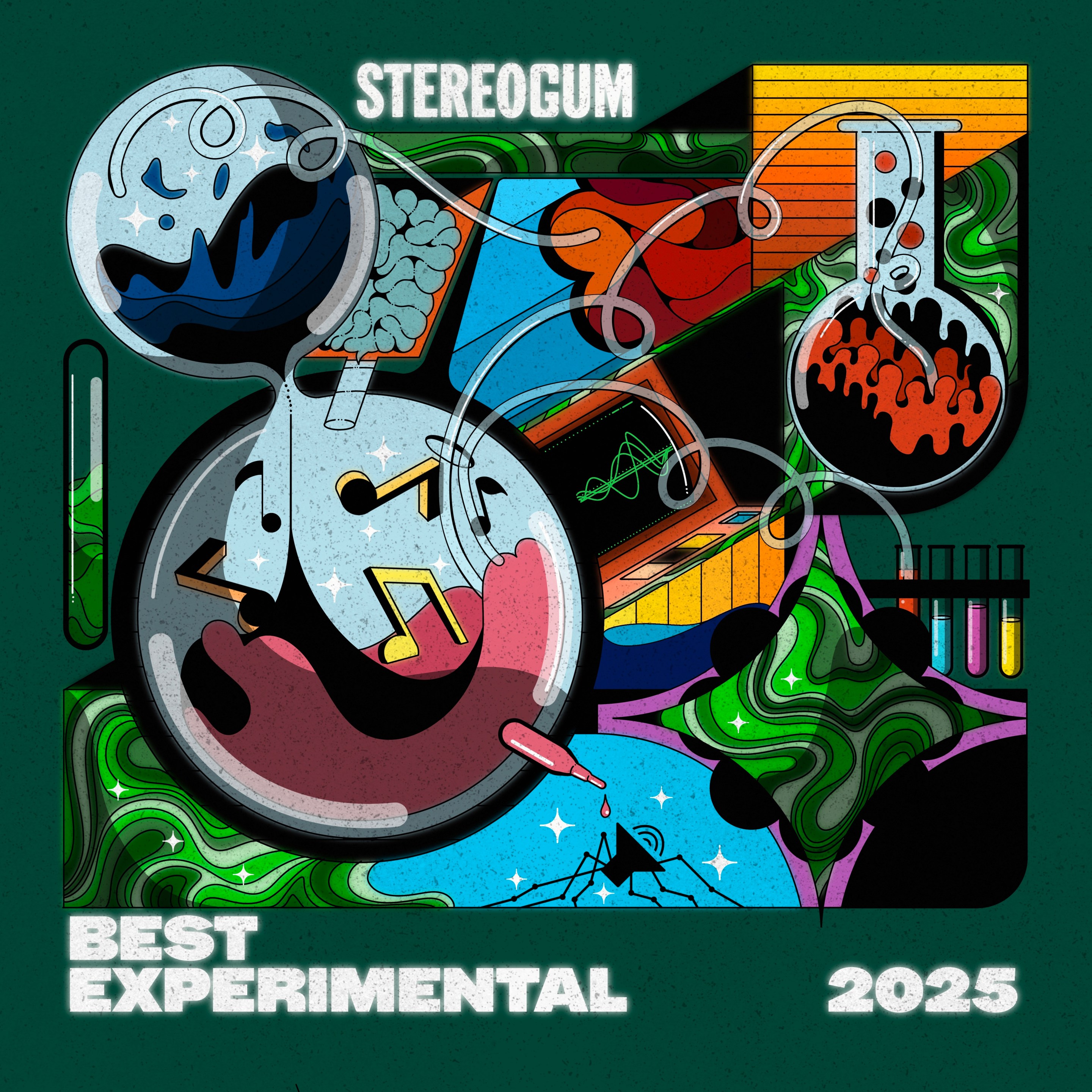Every week the Stereogum staff chooses the five best new songs of the week (the eligibility period begins and ends Thursdays right before midnight). This week's countdown is below, and you can listen to a playlist of all our 5 Best Songs on Spotify.
Today is the latest Friday where Bandcamp is putting its platform and money towards a good cause. In honor of Juneteenth, the site is donating all revenue today to the NAACP Legal Defense Fund. And it's a particularly crowded New Release Friday. It's a good day to get some new music -- what are you all digging into?
The five best songs of the week are below.
5. Doves - "Carousels"
"Carousels" is the first new song Doves have released in over a decade, and they've returned with time on their mind. On a personal level, it finds them looking back to their youth, going to clubs and first falling in love with loud, rhythmic music -- the formative experiences that would first lead them to form the house-inflected Sub Sub, before being reborn as Doves just before the turn of the millennium. Jimi Goodwin described the song as a "mission statement" for what's to come in this reunion era, and there's a poignance to the idea that, once these three men finally came back together, they first traveled back to their own origin stories, to that initial spark.
The weird thing about "Carousels" within all of this is that it's not aggressively nostalgic. A carousel, after all, takes you around and around -- maybe flipping through the old photo book in your head, or maybe sometimes making you see the same image you've seen a million times from a slightly different angle. As a song, "Carousels" actually collapses time. Its insistent drum loop gives the whole thing an elliptical churn, while the mix of new and old makes it feel as if it could have come from any era of Doves and also no previous iteration of the band at the same time. As far as long-awaited comeback singles go, "Carousels" is laden with meaning -- a recap of blurred snapshots, pulling us through the years to set us up for the future. --Ryan
4. Young T & Bugsey - "Don't Rush (Remix)" (Feat. DaBaby)
Hits happen in strange ways. For instance: A Nottingham rap duo, hitting the club circuit in Ibiza, hears a certain Afro-pop club sound banging out of everywhere, then attempts its own version of that sound upon returning home. The duo makes a song that eventually comes to soundtrack a wave of TikTok makeover videos. American radio programmers hear the song in those TikTok videos, and they throw the track into rotation on American rap radio. Then the biggest rapper of the moment gets ahold of the song and positively floats over it, adding energy and charisma to a song that already had plenty of both.
You couldn't repeat those circumstances in a hundred years, and yet "Don't Rush" now seems poised to dominate car speakers all summer. Timing in pop music is a beautiful mystery, one that almost nobody has mastered. But hooks matter just as much as timing, and "Don't Rush" is all hooks, especially now that DaBaby is on it. --Tom
3. Regional Justice Center - "KKK Tattoo"
Even if you couldn't understand the furiously screamed lyrics of "KKK Tattoo," the new song from Ian Shelton's powerviolence project Regional Justice Center, it would still be powerful -- its huge, lumbering riff suddenly igniting into a furious bashed-out assault and then receding back into crushing heaviness. But the words make it hit all the harder. "Insecurity in the form of brand/ Calculated pale/ Sold as the only way through," Shelton spits in disgust. "The small man attempts to stake his claim/ Needle pokes skin/ Etching in hate/ It could be me."
Even if you didn't know the story behind the furiously screamed lyrics of "KKK Tattoo," it would still be powerful. But the background takes the song from being a righteously angry indictment of shitheads with racist tattoos and turns it into a brutally personal self-reflection. Shelton's biological father, who he met for the first time when he was 12 years old, had a tattoo of a Klansman on his bicep. That KKK tattoo isn't some theoretical, imagined enemy. For Shelton, it's a very real one.
And it's one that might be closer to home than most would care to admit. "I haven’t spoken with him in almost 10 years but I’ve constantly gotten stuck on how easily I could have turned out the same as him," Shelton said in a statement that accompanied the song. "For those of us who are white, dismantling white supremacy isn’t only an external glance; you have to acknowledge first and foremost it could be you." "KKK Tattoo" is like a "Nazi Punks Fuck Off" focused inwards, for a new era that demands constant self-critique and work to do better. --Peter
2. John Prine - "I Remember Everything"
John Prine was always a remarkably prescient songwriter. "I Remember Everything," his final recorded song, sounds like it could be coming from the great beyond. It's heart-wrenching.
Prine keeps it elementally simple, the current of his memories pulling him gently along. It's a life summed up in faded snapshots, an accumulation of light and dark and everything in between. "I remember every town/ And every hotel room/ And every song I ever sang/ On a guitar out of tune," he sings. "I remember everything/ Things I can't forget/ The way you turned and smiled on me/ On the night that we first met." The tearful, loving image that Prine conjures up is magical, a comforting closing missive from one of our greatest treasures. His last words are not based in the past but in the present: "I miss you in the morning light, like roses miss the dew." He'll certainly be missed. --James
1. Phoebe Bridgers - "I Know The End"
Most of Phoebe Bridgers' new album Punisher is quiet and spare. It's the kind of hushed, carefully but restrictively adorned music that can make you feel as if you're in a room having a conversation with the person singing on the other end. That's the kind of music that has a strange intimacy to it: You can't help but be aware of how personal it all is, and yet it lets you find your way in and form your own deep connections, to hear your own stories within it. That's already a heavy experience, and if the music went too big, it might all be too much to take in.
So when Bridgers decides to go big, she really does it. It's as thought-through as everything else about the album. You can feel "I Know The End" not just as a surge of musical catharsis but as a result of everything that was held back and everything that was given along the way, and the collective need for a complete end-of-the-world purge at the conclusion of it all.
The first time you get to the end of Punisher, "I Know The End" is almost a feint -- another plaintive vocals-and-guitar intro, a meditation in line with what precedes it. That feint instead turns out to be a magic trick: A few minutes in, Bridgers embarks on a final, lengthy stanza as instruments begin to pick up behind her, and then suddenly the song erupts into layers of horns and background vocals and screams and guitars. Even if you know that magic trick -- the swelling epic album closer -- Bridgers, as usual, knows how to play it.
Bridgers has said that "I Know The End" is about the apocalypse. But she's parsing fragments of her own life during Armageddon, at least. In the beginning, "I Know The End" traces some of the same issues that run through the entirety of Punisher: in Germany, in Texas, living a dream life but not being able to enjoy it as you're still weighed down by the same demons, and still romanticizing the same quiet life (or any other life) in exchange.
On an album full of impressive lyrics, it's that final stanza that really levels you. The specific setting is Bridgers driving through California to her grandparents' home, but really it's a scene that really anyone in America knows. "A slaughterhouse, an outlet mall/ Slot machines, fear of God," alien conspiracies, looking for a creation myth but just moving through detritus -- and finally, a billboard proclaiming the end is near, one you suddenly realize you agree with. It's a stunning, evocative passage, and a well-spent allocation of the album's one moment of true intensity. As a result, "I Know The End" captures the insane, perverse concept of trying to grow as a person while the world around you twists itself into ever more distorted and untenable shapes. --Ryan






